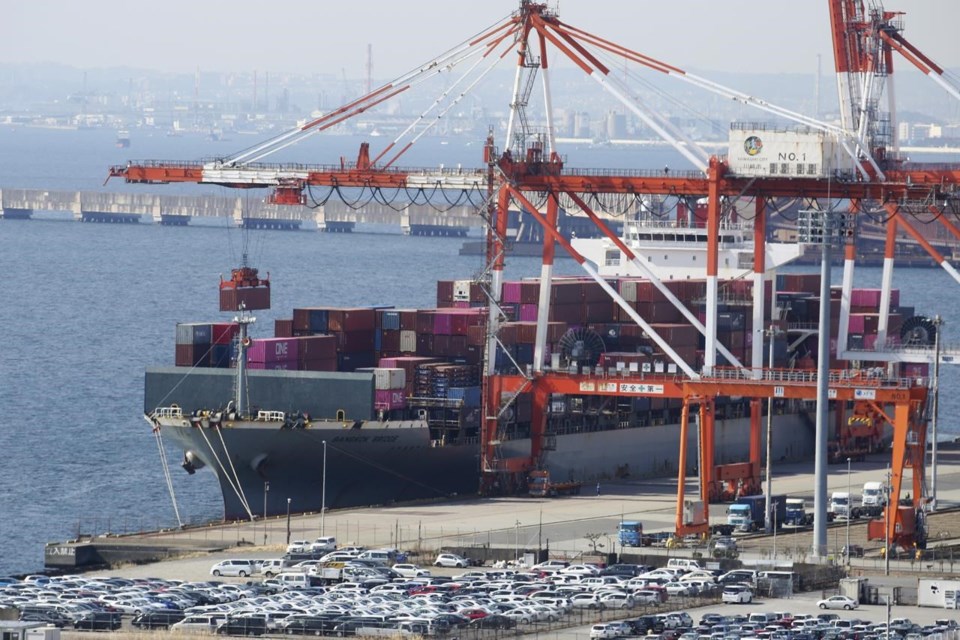TOKYO (AP) — Japan marked a trade deficit for the 15th month in a row in October, as both imports and exports reached record highs amid the soaring costs of energy and food and a drooping yen.
The deficit, at 2.16 trillion yen ($15 billion), was the highest for the month of October since comparable data was first compiled in 1979, the Finance Ministry said Thursday.
The huge deficit came despite a solid growth in exports, which rose 25.3% last month to 9 trillion yen ($64 billion) from a year ago. Among the products boosting exports were vehicles, medical products and electrical machinery, according to the ministry.
Imports totaled 11 trillion yen ($79 billion), surging 53.5% from the previous year. Japan is dependent on both energy and food imports at a time when inflation pressures have been rising globally.
Japan’s trade balance has fluctuated in recent years partly because of disruptions to production and other problems related to the coronavirus pandemic.
Also critical to the rising cost of imports is the declining value of the Japanese currency. The U.S. dollar, trading at about 110 yen a year ago, has risen lately to nearly 150 yen. The drop has eased in recent weeks, with the dollar now trading at about 140 yen.
By nation, October exports grew to the U.S., as well as to Asia, particularly Indonesia, Vietnam and South Korea. Imports grew from those nations as well, but also from Taiwan, Malaysia and Germany. Imports from the Middle East soared 87%.
The war in Ukraine and other global factors have set off the recent steep rise in energy costs. Japan imports almost all its oil.
The weak yen tends to work as a boon for Japan’s giant exporters, like Toyota and Nintendo, by raising the value of overseas earnings when converted in yen. But such perks often aren’t enough to counter the rising costs of components, energy, raw materials and other goods.
Lower interest rates tend to send that nation’s currency lower against those nations with higher interest rates. The Bank of Japan has maintained a negative interest rate policy, to keep economic activity going, while the U.S. Federal Reserve has repeatedly tightened monetary policy to combat growing inflation pressures.
But the cheap yen is almost certain to be a plus for tourism, a key revenue for the world’s third largest economy. After basically closing borders to tourists over worries about COVID-19 infections, Japan has now switched to welcoming them.
___
Yuri Kageyama is on Twitter https://twitter.com/yurikageyama
Yuri Kageyama, The Associated Press




